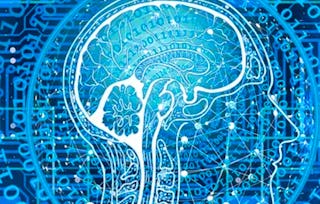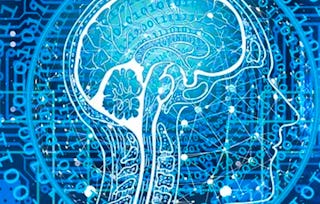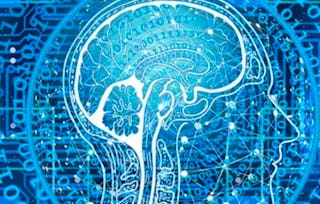This course introduces you to two of the most sought-after disciplines in Machine Learning: Deep Learning and Reinforcement Learning. Deep Learning is a subset of Machine Learning that has applications in both Supervised and Unsupervised Learning, and is frequently used to power most of the AI applications that we use on a daily basis. First you will learn about the theory behind Neural Networks, which are the basis of Deep Learning, as well as several modern architectures of Deep Learning. Once you have developed a few Deep Learning models, the course will focus on Reinforcement Learning, a type of Machine Learning that has caught up more attention recently. Although currently Reinforcement Learning has only a few practical applications, it is a promising area of research in AI that might become relevant in the near future.

Deep Learning and Reinforcement Learning

Deep Learning and Reinforcement Learning
This course is part of IBM Machine Learning Professional Certificate



Instructors: Mark J Grover
45,002 already enrolled
Included with
289 reviews
Skills you'll gain
- Artificial Neural Networks
- Computer Vision
- Machine Learning Methods
- Autoencoders
- Deep Learning
- Transfer Learning
- Dimensionality Reduction
- Keras (Neural Network Library)
- Recurrent Neural Networks (RNNs)
- Model Evaluation
- Generative Adversarial Networks (GANs)
- Artificial Intelligence
- Convolutional Neural Networks
- Unsupervised Learning
- Machine Learning
- Reinforcement Learning
- Skills section collapsed. Showing 8 of 16 skills.
Details to know

Add to your LinkedIn profile
See how employees at top companies are mastering in-demand skills

Build your Machine Learning expertise
- Learn new concepts from industry experts
- Gain a foundational understanding of a subject or tool
- Develop job-relevant skills with hands-on projects
- Earn a shareable career certificate from IBM

There are 9 modules in this course
This module introduces Deep Learning, Neural Networks, and their applications. You will go through the theoretical background and characteristics that they share with other machine learning algorithms, as well as characteristics that make them stand out as great modeling techniques for specific scenarios. You will also gain some hands-on practice on Neural Networks and key concepts that help these algorithms converge to robust solutions.
What's included
16 videos1 reading3 assignments3 app items
In this module, you will learn about the maths behind the popular Back Propagation algorithm used to optimize neural networks. In the Back Propagation notebook, you will also see and understand the use of activation functions. The main purpose of most activation function is to introduce non-linearity in the network so it would be capable of learning more complex patterns. Last, but not least, you will learn to use functions and APIs from the Keras library to solve tasks that involve neural networks, and these tasks start with loading images.
What's included
13 videos1 reading3 assignments4 app items
You can leverage several options to prioritize the training time or the accuracy of your neural network and deep learning models. In this module you learn about key concepts that intervene during model training, including optimizers and data shuffling. You will also gain hands-on practice using Keras, one of the go-to libraries for deep learning.
What's included
6 videos1 reading2 assignments2 app items1 plugin
In this module you become familiar with convolutional neural networks, also known as space invariant artificial neural networks, a type of deep neural networks, frequently used in image AI applications. There are several CNN architectures, you will learn some of the most common ones to add to your toolkit of Deep Learning Techniques.
What's included
9 videos1 reading2 assignments6 app items
In this module, you will understand what is transfer learning and how it works. You will implement transfer learning in 5 general steps using a variety of popular pre-trained CNN architectures, such as VGG-16 and ResNet-50. You will study the differences among those CNN architectures and see how the invention of each solves the problem of its predecessors. Last, but not least, as we are moving to working with deeper neural networks, you will also be equipped with regularization techniques to prevent overfitting of complex models and networks.
What's included
8 videos1 reading4 assignments4 app items1 plugin
In this module you become familiar with Recursive Neural Networks (RNNs) and Long-Short Term Memory Networks (LSTM), a type of RNN considered the breakthrough for speech to text recongintion. RNNs are frequently used in most AI applications today, and can also be used for supervised learning.
What's included
9 videos1 reading3 assignments5 app items
In this module you become familiar with Autoencoders, an useful application of Deep Learning for Unsupervised Learning. Autoencoders are a neural network architecture that forces the learning of a lower dimensional representation of data, commonly images. In this module you will learn some Deep learning-based techniques for data representation, how autoencoders work, and to describe the use of trained autoencoders for image applications
What's included
7 videos1 reading2 assignments2 app items1 plugin
In this module, you will learn about two types of generative models, which are Variational Autoencoders (VAEs) and Generative Adversarial Networks (GANs). We will look at the theory behind each model and then implement them in Keras for generating artificial images. The goal is usually to generate images that are as realistic as possible. In the last lesson of this module, we will touch on additional topics in deep learning, namely using Keras in a GPU environment for speeding up model training.
What's included
7 videos1 reading3 assignments4 app items
In this module you become familiar with other novel applications of Neural Networks. You will learn about Generative Adversarial Networks, frequently referred to as GANs, which are an application of Neural Networks to generate new data. Finally, you learn about Reinforcement Learning, one of the big promises for A.I., based on training algorithms by using rewards, instead of using a method to minimize error, which is what we have been using throughout the course.
What's included
5 videos2 readings2 assignments1 peer review1 app item
Earn a career certificate
Add this credential to your LinkedIn profile, resume, or CV. Share it on social media and in your performance review.
Instructors



Offered by
Explore more from Machine Learning
Why people choose Coursera for their career

Felipe M.

Jennifer J.

Larry W.

Chaitanya A.
Learner reviews
- 5 stars
76.81%
- 4 stars
12.45%
- 3 stars
5.53%
- 2 stars
1.38%
- 1 star
3.80%
Showing 3 of 289
Reviewed on Mar 6, 2023
Excellent course and beautiful eye opener for me! Five out of Five Stars!
Reviewed on Jan 11, 2021
Reinforcement Learning part needs to be a separate course and more details in it
Reviewed on Mar 29, 2022
Thank you Coursera.Thank you IBMThank you to all instructors

Open new doors with Coursera Plus
Unlimited access to 10,000+ world-class courses, hands-on projects, and job-ready certificate programs - all included in your subscription
Advance your career with an online degree
Earn a degree from world-class universities - 100% online
Join over 3,400 global companies that choose Coursera for Business
Upskill your employees to excel in the digital economy
Frequently asked questions
To access the course materials, assignments and to earn a Certificate, you will need to purchase the Certificate experience when you enroll in a course. You can try a Free Trial instead, or apply for Financial Aid. The course may offer 'Full Course, No Certificate' instead. This option lets you see all course materials, submit required assessments, and get a final grade. This also means that you will not be able to purchase a Certificate experience.
When you enroll in the course, you get access to all of the courses in the Certificate, and you earn a certificate when you complete the work. Your electronic Certificate will be added to your Accomplishments page - from there, you can print your Certificate or add it to your LinkedIn profile.
More questions
Financial aid available,
¹ Some assignments in this course are AI-graded. For these assignments, your data will be used in accordance with Coursera's Privacy Notice.







